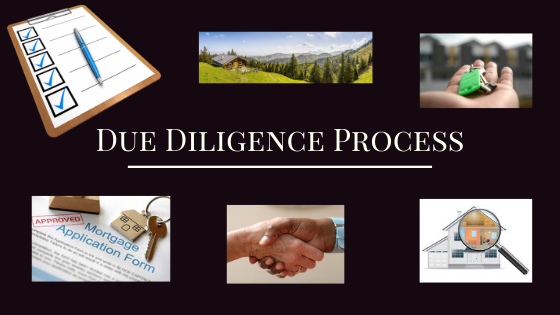Earnest money and due diligence fees can confuse new home buyers, especially those entering the real estate market for the first time. Before purchasing a new home, several steps need to be completed, including obtaining loan pre-approval and exploring potential properties (for example, does the property have a well or a septic system? These are some things those new to the High Country need to read up on), making offers, and, crucially, conducting due diligence.
Navigating the intricacies of real estate in the weeks leading up to closing can prove challenging. The due diligence period offers a window to secure financing if required, and ensure the property aligns with your expectations. This phase allows homebuyers to conduct thorough research, inspect the property, plan for inspections, negotiate repair requests, and learn more about the HOA if applicable, before committing fully.
Understanding Due Diligence and Earnest Money Processes
To shed light on these processes for first-time home buyers in North Carolina, let’s delve into the steps involved:
-
Choose a Due Diligence Money Process:
In North Carolina, both earnest money and due diligence money can be negotiated during the home buying process. While neither is mandatory, most contracts include both to safeguard the interests of the seller. Earnest money serves as a good faith deposit, demonstrating the buyer’s commitment to the purchase. Conversely, due diligence money compensates sellers for taking their house off the market and is typically paid upfront.
-
Consider a Closing Attorney:
During the due diligence period, buyers often select a closing attorney to oversee their escrow and earnest money. These attorneys handle title searches and deed preparation, ensuring all closing documents are in order.
-
Obtain a North Carolina Home Inspection:
One of the most critical steps during due diligence is the home inspection, typically conducted by a licensed and insured North Carolina home inspector. The inspection report provides insights into the property’s condition, guiding buyers in making informed decisions about repairs and negotiations.
-
Review Restrictions and Check Zoning:
Properties in subdivisions may be subject to restrictions and covenants, requiring careful review during due diligence. Additionally, county zoning regulations can impact property usage, especially concerning rental or development plans.
-
Obtain Home Insurance:
Securing home insurance is essential during due diligence to protect the investment. Insurance agents assess factors like zoning, flood zoning, and property use to recommend appropriate coverage.
-
Have Your Home Appraised:
An appraisal ensures buyers aren’t overpaying for the property and is often required for mortgage approvals. Appraisals during due diligence reassure both the bank and buyer of the property’s value.
-
Check for Underground Storage Tanks (USTs):
An often overlooked step, checking for USTs is crucial to prevent water and soil quality issues. Soil testing ensures any potential problems are addressed before closing.
-
Renegotiate:
Following inspections, buyers can renegotiate the purchase price based on findings. Real estate agents play a vital role in negotiating repairs and securing the best outcome for buyers.
Frequently Asked Questions About Due Diligence Periods
Due diligence periods often raise questions for buyers. Common inquiries include whether due diligence fees are refundable and the duration of the due diligence period. While due diligence fees are non-refundable if the contract is terminated, earnest money is typically applied towards the purchase price at closing.
Seek Guidance on the NC Due Diligence Period
Navigating the due diligence process requires attention to detail and expertise. Partnering with a North Carolina real estate professional who can facilitate each step ensures a seamless experience and protects buyers throughout the negotiation process.
For guidance on due diligence and other real estate processes, explore our blog highlighting essential qualities to look for in a real estate agent.

